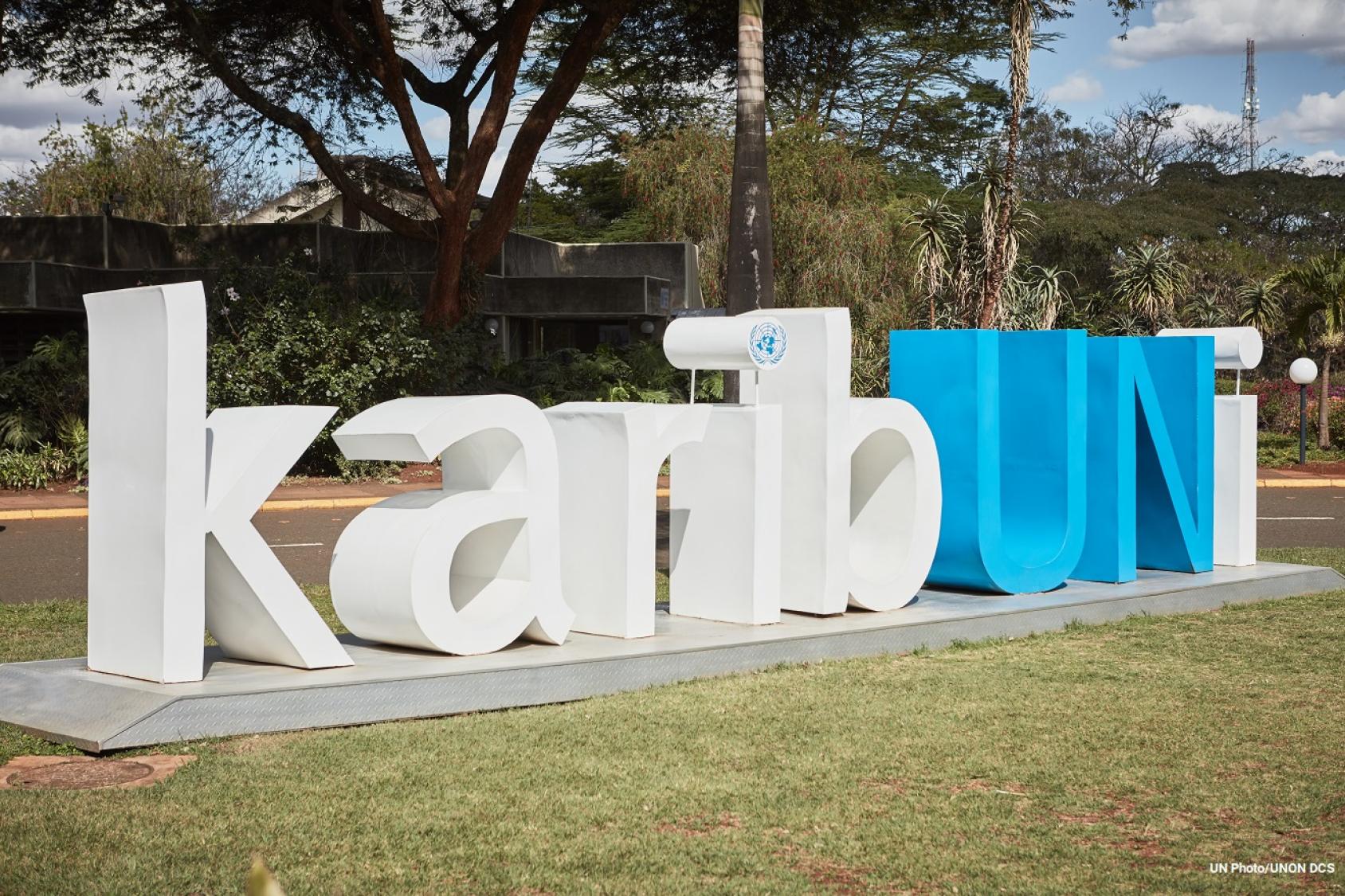UN Kenya: Smarter workflows to boost impact for people and planet
One of the objectives of UN Secretary-General Antonio Guterres’ overhaul of the UN development system was to ensure that UN teams on the ground were fit for purpose – efficient and impactful – and better positioned to support countries deliver their promise for people and planet, the 2030 Agenda for Sustainable Development.
Zainab Hawa Bangura, Director-General of the UN Office at Nairobi (UNON), and Resident Coordinator Stephen Jackson played a key role in delivering this vision.
In January 2024, the UN team in Kenya broke new ground by bringing together over 60 UN offices’ services that are often referred to as back-office functions – such as administration, human resources, procurement, Information Technology (IT), finance and a Harmonized Approach to Cash Transfers (HACT), and logistics – into a ‘one-stop shop’ for all entities.
'Direct gains for beneficiaries’
What do streamlining processes or cost-saving measures have to do with a revitalized UN? Quite a bit, it turns out. Bringing together back-office functions – or “Common Back Office” – can generate savings that can be redirected to boost support for people and the planet, explains Resident Coordinator Jackson: “By consolidating all these services, we are going to be realizing real cost-savings, real efficiencies, that can be put back into our development programming,” Jackson explains.

UNON, one of the UN’s global headquarters and the only one in the Global South, plays a seminal role in the initiative. UNON will host UN Kenya’s Common Back Office as a primary service provider, with support from the UN Children’s Fund (UNICEF) and the World Food Programme (WFP). UNON’s Director-General Bangura hopes that “this cutting-edge facility will serve as a hub of collaboration, bringing together various UN agencies under one roof, streamlining operations, and fostering a culture of unity and efficiency.”
Simplifying operations for all
The Common Back Office harmonizes operations for all stakeholders, from vendors and staff to partner organizations.
For example, consolidated procurement provided by UNON under the CBO allows UN Kenya to negotiate better prices for contracts. Previously, each entity managed its own contracts for office supplies, travel services, furniture, and event venues, to name a few. With consolidated procurement services under this Common Back Office scheme, entities will interact with stakeholders as one UN, which in turn helps them negotiate better prices and set up contracts that are more beneficial for all parties.
The advantage of a Common Back Office will even have a positive impact when it comes to jobs and career development for people in Kenya. Rather than scouring over 30 different portals and sites, local job applicants will be able to use one platform to apply to different UN entities. A shared roster launched by UNON that will reduce time spent on recruitment is also in the works.
Further, while each UN entity used to organize their own optional trainings for staff development, a Common Back Office modality provides an extended offer for staff trainings, further reducing costs and duplications while reinforcing knowledge sharing.
Efficiency: All hands on deck
This new way of working makes the most of UN entities' comparative advantages. Driven by the Resident Coordinator’s call for more efficiencies, the UN team agreed that WFP was the entity best fit to provide expertise in logistics, as they have been in the region for over 30 years, with a large footprint across Kenya. “This is an opportunity for us all to benefit,” says Frances Walker, Supply Chain Officer at WFP.
Although the Common Back Office in Kenya has only been open for eight weeks, WFP said that the initial volume of requests, such as transport services, from UN Secretariat entities and other agencies is promising.
“Consolidating these functions will enable the UN in Kenya to benefit from specialized experts and resources in these areas,” says Benjamin Meyer, UNICEF’s Deputy Representative for Operations in Kenya, pointing out the potential for improving the quality of services.
Expectations are high with the UN in Kenya paving the way for other UN teams around the world to adapt and innovate, pairing impact with efficiency. At a time of shrinking resources and complex global crises, the UN faces growing demands and expectations. Every dollar and every opportunity for change holds immense potential, shaping a cultural shift within the UN and its delivery for people and planet.













